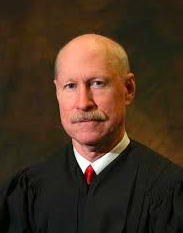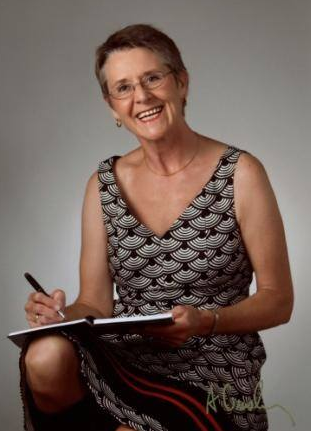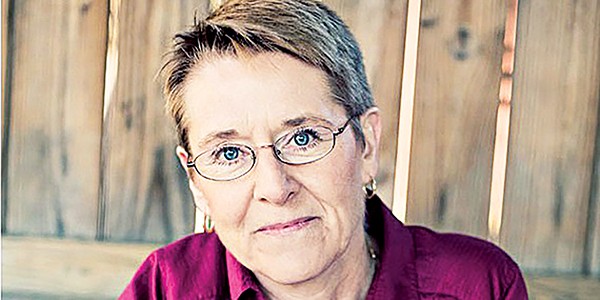Elaine Blanchard is a little bit mad and she’s not shy about saying so. “I’m a little mad,” the professional storyteller says in a gentle, caring voice that doesn’t sound like it could ever convey much in the way of real frothing anger. “The clients at Friends for Life [an AIDS service organization group] don’t have a lot of money, obviously,” she says, showing frustration. “They don’t have a lot of social or financial security either. And they are all HIV-positive. Also, everybody in the group I’m working with is black.”
Blanchard has built a strong a reputation locally as a social activist and artist whose important work bridges a gap between theater and journalism. She’s best known for launching Prison Stories, an ongoing theatrical experiment collecting and sharing the highly personal and endlessly revealing stories of women behind bars in Memphis. More recently, she’s been leading a 12-week workshop with Friends for Life clients, developing a new piece of narrative theater called Positive Stories, a play that spotlights Friends for Life’s 24-year history of working in Memphis’ HIV-positive community.
Positive Stories takes a deep plunge into the life experiences of a group of Memphians who struggle daily with a potentially deadly disease in a repressive, sometimes hostile environment where, even in 2014, they have to keep their condition under wraps. Blanchard’s frustrated observations about the relationship of race and class to the spread of HIV line up with a 2010 Centers for Disease Control & Prevention (CDC) report ranking Memphis as fifth in the nation for newly infected HIV patients, with the highest percentage of new infections occurring among African-American males between 15 and 34-years-old. It’s a circumstance clearly exacerbated by fear, cultural bias, income inequality, and racial ambivalence.
“And here’s what really makes me mad,” Blanchard adds, “the people who come to Friends for Life are all needy, poor. They are also very religious. The church takes high priority in their value system. But that’s also why they are so ashamed and isolated. They have poor self-esteem because their churches tell them that this terrible disease they have is punishment for something they’ve done wrong. This is a big boulder that these people carry around on their backs all the time.” Many of the clients attending Blanchard’s workshop are terrified of being ostracized and require a lot of assurance that nobody will use the information they share with Blanchard against them.
“This is your chance to be a part of something beautiful,” Blanchard assures the group. “This is your chance to educate people. To show them what it’s really like.”
Blanchard begins a workshop by reminding everyone gathered in the circle that the script is called Positive Stories for a reason. “We, as the audience members, can only tolerate so much pain,” she says as one participant retrieves a box of tissues and places it where everybody can easily reach it. “Maybe we can start off with lighter stories and talk about where you grew up, or good things you remember about your grandma,” she says. “Then we can move into troubles you’ve had.” Blanchard has been through this repeatedly with Prison Stories, and she knows on the front end that lighter stories will be outweighed by trouble. One man talks about being moved from one foster home to the next until he was dumped onto the street at 18 with no skills, no money, and no understanding of just how dangerous unprotected sex could be. Today, he still struggles with guilt because he also infected his wife. And he struggles to understand how a strong young man in his 20s can also be a stroke victim with nerve damage in his legs. He also wonders if his closest brush with death — the terrible experience that led him to Friends for Life — saved him from an early grave.
Another man, in soft and measured tones, tells a long cautionary tale about the hazards of sharing your story with the wrong people. Like your family.
“After my diagnosis I went home and told my parents,” he says. “I was immediately an outcast. Everything I owned came out to my car, including my toothbrush. Then everything that wasn’t mine that I had touched or ate out of had to be washed out with Clorox. I got a job and ended up losing that job because they wanted to know why I had to go to the doctor. I was reluctant to tell them because they told me at the Med I didn’t have to tell nobody as long as I had a doctor’s statement. But they kept on pursuing it, so I finally told them and a month later they called me in said they had a customer complaint. I was fired. Later I asked my supervisor if this was because I have HIV. He said, ‘If you ask me in front of [the boss], no. But while we’re back here, yes, that’s why.’ I had no friends. I hit rock bottom.”
The man breaks down in the middle of his story and reaches for tissues. The group, comprised of old friends and relative strangers, sings to him and shows verbal and physical support until he regains composure and finds the positive side of his story.
“That’s when I found Friends for Life,” he says. “I was meeting people who were positive like I was. And then I wasn’t afraid anymore. Now I’ve got housing, a car, a bank account. Now I’m able to sleep good.”
Blanchard has also collected some positive stories from people who’ve worked with the Friends for Life organization. “Do you know how they got their building [at 43 Cleveland],” she asks, in a tone more mysterious-sounding than an ordinary property transfer might warrant. “Two men owned that building. And one of the owners [Ronney Snell] was driving down Cleveland one day when he saw an old feeble man carrying two heavy bags and really struggling with them. So, even though it wasn’t something he might normally do, [Snell] stopped and offered the old man a ride. And as they drove, the old man told the driver his story about having AIDS, how he got it, and how he didn’t expect to live much longer. The next day, [Snell] called Friends for Life. ‘We’re donating a building and parking lot,’ he said. ‘I want to know I’ve done something to help.’
“What do you think about that?” Blanchard asks, demonstrating her skills as a master storyteller. “Can you believe they’ve never known the name of the passenger the man picked up that day?”
HIV and AIDS may not generate the headlines they once did, but the plague continues to rage in disenfranchised communities, and there is no shortage of stories to tell. Blanchard continues in her mission to give a voice to the voiceless, tempering the saddest stories imaginable with just enough hope to keep things bearable.



